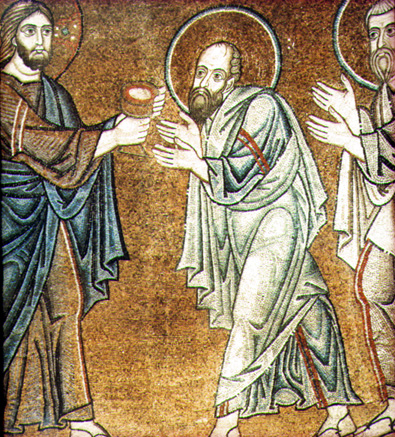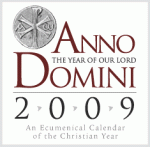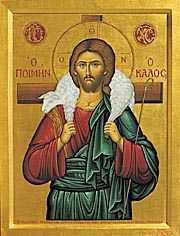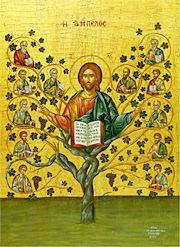Quite often in debates on Christianity, we hear the argument regarding whether or not there is salvation outside the Church. For the apostolic Christian, those holding the Catholic and Orthodox faiths, the debater means precisely those Churches. He is then villified by heterodox Christians, secularists, and those adhering to other beliefs for holding that stance, especially in today’s “I’m OK, you’re OK” world.
In a very real sense, however, such a statement by an apostolic Christian should be rejected. We are told throughout the New Testament, in the words of Christ, Paul, James and others, that judgement belongs to God alone, that God shows mercy to and blesses whomever he wishes, that what we cannot lovingly forgive in others we will not be forgiven of ourselves. In light of these revealed teachings, it seems clear that I am wrong whenever I judge another’s prospects for salvation before God; in fact, I endanger my own soul.
We are called to discernment, however, and we are called to preach the Faith as received into the Church through Jesus Christ and His Apostles. There are things we need to shout out from the rooftops and be willing to die for (as did the martyrs of the Church,) namely:
THERE IS SALVATION WITHIN THE CHURCH, WHICH CONTAINS THE FULLNESS OF THE LIFE OF CHRIST…THROUGH THE GRACE OF GOD, THE CHURCH RECOGNIZES AND DISTRIBUTES THE MEDICINE OF IMMORTALITY THAT IS THE EUCHARIST.
 We live by keeping the commandments of Christ to draw life from His Body and Blood. Compare the words of Christ in John Chapter 6 and the actions of Christ at the Last Supper, the Eucharistic meal of Mark Chapter 14. Christ did not reveal the Eucharist as a symbolic act only.
We live by keeping the commandments of Christ to draw life from His Body and Blood. Compare the words of Christ in John Chapter 6 and the actions of Christ at the Last Supper, the Eucharistic meal of Mark Chapter 14. Christ did not reveal the Eucharist as a symbolic act only.
Those who deny the presence of Christ in the Eucharist as faithfully maintained in the Apostolic Churches are either ignorant of or willfully in denial of the earliest teachings of the churchmen who immediately followed the Apostles.
One example among many is from Justin Martyr. He was born not long after the composition of the Gospel of John and the time of that Apostle’s death. Justin lived until around 165 AD. His writings form one of the largest deposit of early records of the Church. From his work, The Apologies:
This food we call the Eucharist, of which none are allowed to be partakers but such only as are true believers, and have been baptized in the Laver of Regeneration for the remission of sins, and live according to Christ’s precepts; for we do not take this as common bread, and common wine. But as Jesus Christ our Saviour was made flesh by the Logos of God, and had real flesh and blood for our salvation, so are we taught that this food, which the very same Logos blessed by prayer and thanksgiving, is turned into the nourishment and substance of our flesh and blood; and is in some sense the flesh and blood of the incarnate Jesus. For the Apostles, in their commentaries called the Gospels, have left this command upon record, “That Jesus took bread, and when He had given thanks, He said, Do this in commemoration of Me, for this is My body; And in like manner He took the cup, and when He had given thanks, He said, This is My blood,” and delivered it to them only… After this sacrament is over, we remind each other of the obligations to his duty, and the rich relieve the poor; and upon such charitable accounts we visit some or other every day.
So it was from the very earliest points of faith in our Lord, God, and Savior, Jesus Christ, through the undivided First Thousand Years of the Church, and up until the falling away of the past few hundred years due to the teachings of Protestant extremists. Salvation was known to come to us through living out our baptism: keeping faith with Christ by uniting ourselves with His Altar and receiving the Eucharist and the Real Presence, while we imitated Him in all things and lived with everyone in love, peace, and self-sacrifice.
I risk judgment on myself if I dare to ask who outside the apostolic Churches can be saved, especially as I abuse Christ and deny God every day in my own sinful life. If there is such a question to be asked, however, this is it: “Except through His abundant mercy and compassion, how does God save where the real presence of Christ in the Eucharist is denied?”
The prayer of the Eastern Church just prior to the faithful’s receipt of the Eucharist:
I believe and confess, Lord, that You are truly the Christ, the Son of the living God, who came into the world to save sinners, of whom I am the first. I also believe that this is truly Your pure Body and that this is truly Your precious Blood. Therefore, I pray to You, have mercy upon me, and forgive my transgressions, voluntary and involuntary, in word and deed, known and unknown. And make me worthy without condemnation to partake of Your pure Mysteries for the forgiveness of sins and for eternal life. Amen
How shall I, who am unworthy, enter into the splendor of Your saints? If I dare to enter into the bridal chamber, my clothing will accuse me, since it is not a wedding garment; and being bound up, I shall be cast out by the angels. In Your love, Lord, cleanse my soul and save me.
Loving Master, Lord Jesus Christ, my God, let not these holy Gifts be to my condemnation because of my unworthiness, but for the cleansing and sanctification of soul and body and the pledge of the future life and kingdom. It is good for me to cling to God and to place in Him the hope of my salvation.
Receive me today, Son of God, as a partaker of Your mystical Supper. I will not reveal Your mystery to Your adversaries. Nor will I give You a kiss as did Judas. But as the thief I confess to You: Lord, remember me in Your Kingdom.
 We live by keeping the commandments of Christ to draw life from His Body and Blood. Compare the words of Christ in John Chapter 6 and the actions of Christ at the Last Supper, the Eucharistic meal of Mark Chapter 14. Christ did not reveal the Eucharist as a symbolic act only.
We live by keeping the commandments of Christ to draw life from His Body and Blood. Compare the words of Christ in John Chapter 6 and the actions of Christ at the Last Supper, the Eucharistic meal of Mark Chapter 14. Christ did not reveal the Eucharist as a symbolic act only.
 tunity to hear it fresh and embrace it more fully. I hope you will share in that blessing.
tunity to hear it fresh and embrace it more fully. I hope you will share in that blessing.
